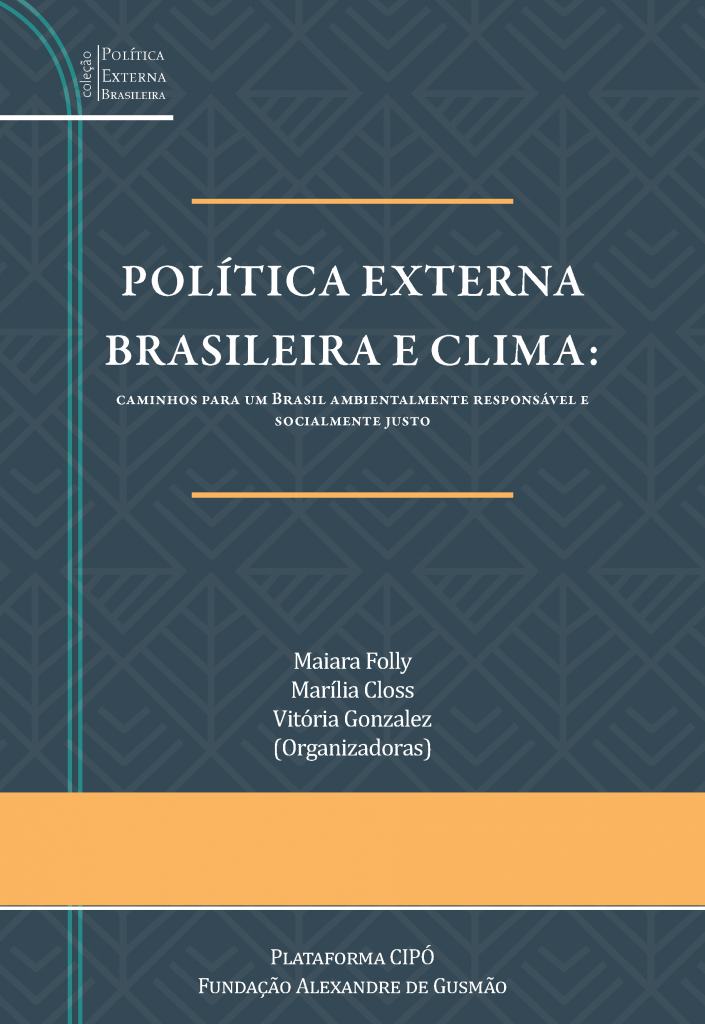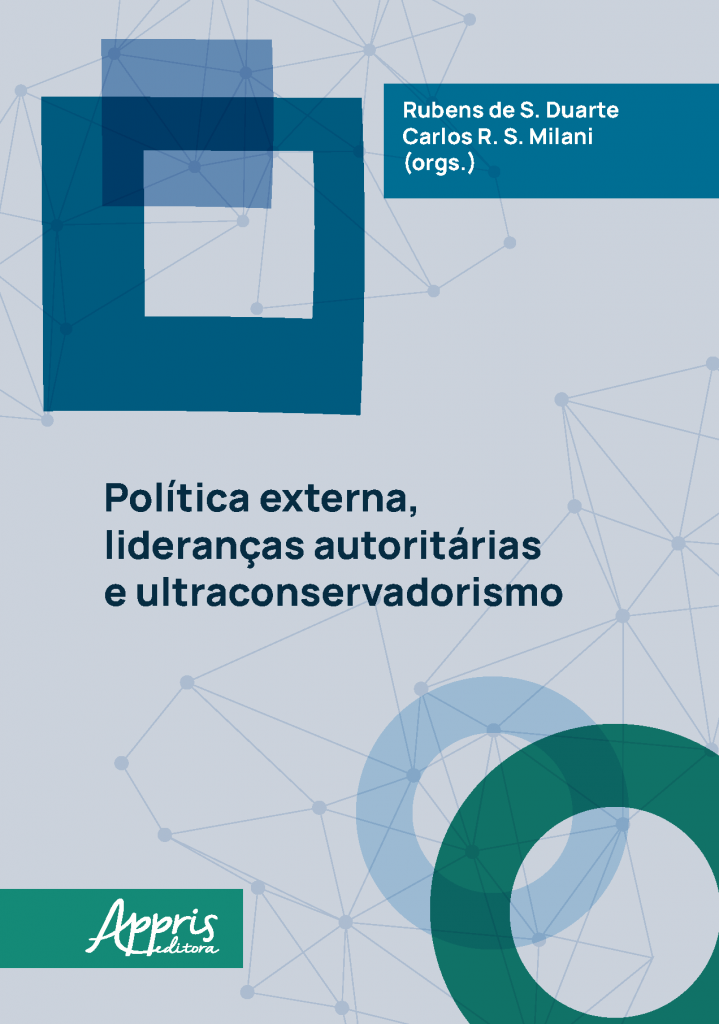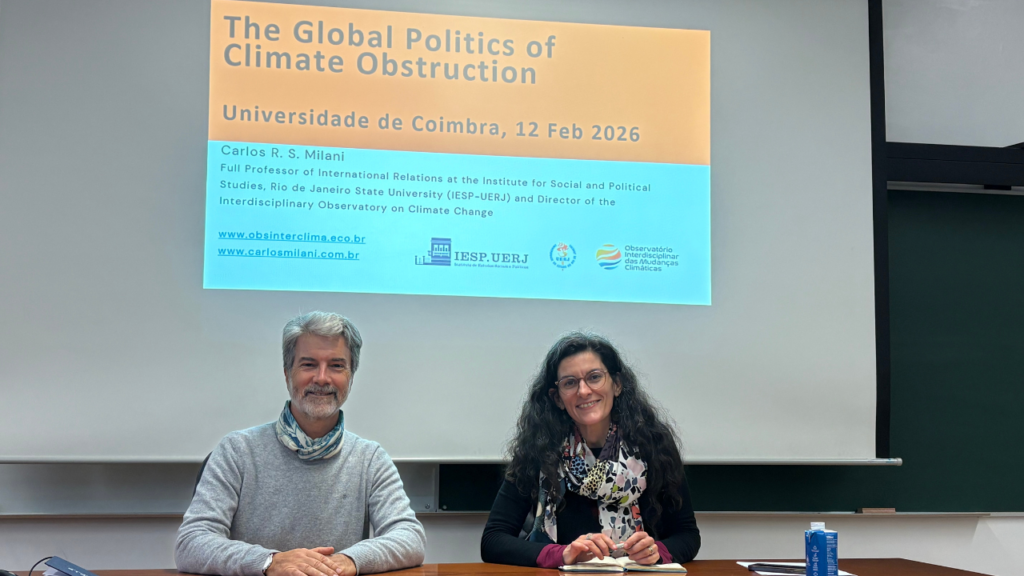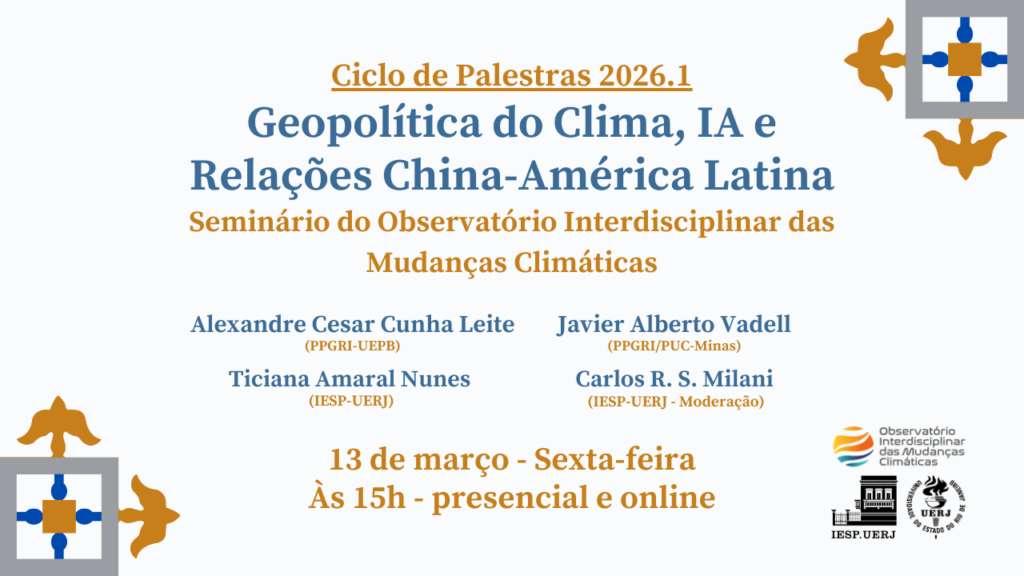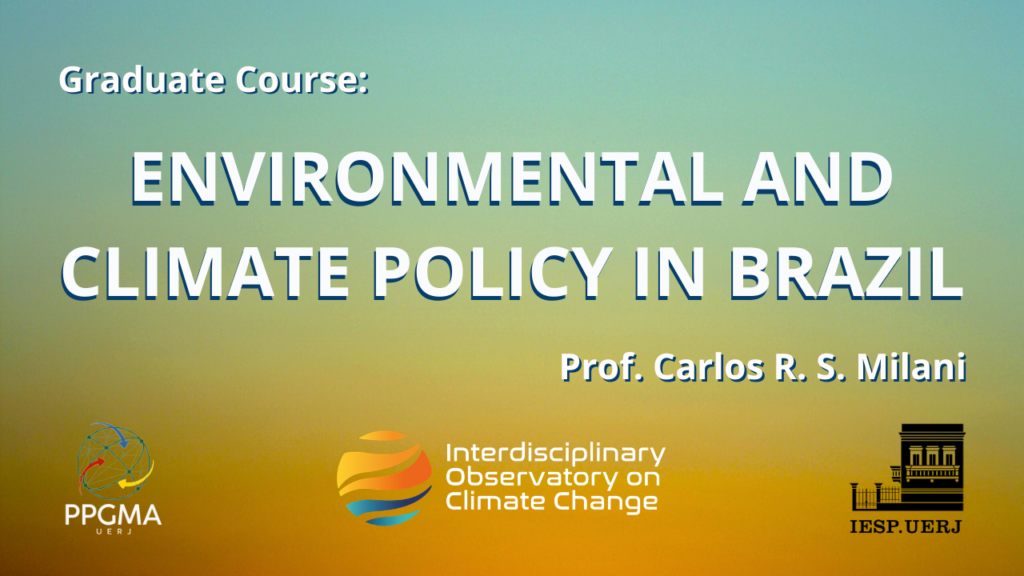On Monday 7 October 2024, the Interdisciplinary Observatory on Climate Change will join forces with Plataforma CIPÓ and the World Political Analysis Laboratory (LABMUNDO) to hold the panel discussion Climate emergency and Brazilian foreign policy in debate at the IESP-UERJ campus (Rio de Janeiro – RJ). Taking place from 5.30pm in the Olavo Brasil Room, the event celebrates the release of two books: Brazilian Foreign Policy and Climate: Paths to an Environmentally Responsible and Socially Just Brazil (Cipó and FUNAG, 2024), organised by Maiara Folly, Marília Closs and Vitória Gonzalez, and Foreign Policy, Authoritarian Leadership and Ultraconservatism (Appris Editora, 2024), organised by Rubens de S. Duarte and Carlos R. S. Milani.

The panel will be opened by Prof Milani (IESP-UERJ), coordinator of the OIMC and LABMUNDO, and Vitória Gonzalez, CIPÓ’s project coordinator. Rubens Duarte (PPGCM-IMM-ECEME), coordinator of LABMUNDO and an associate researcher at the Observatory, and Marília Closs, CIPÓ’s project coordinator, will then explain the themes developed in the two books, with the presence of various authors who contributed to the collections.
Consisting of 11 chapters written by CIPÓ researchers, Brazilian Foreign Policy and Climate: Paths to an Environmentally Responsible and Socially Just Brazil highlights the ways in which Brazilian foreign policy can take the lead in building a more democratic, environmentally responsible and socially just Brazil, global governance and world. With a foreword by Brazil’s Minister for Indigenous Peoples, Sônia Guajajara, the book also examines Brazil’s trajectory in the context of the global climate regime, seeking to extract lessons that can guide the effective and inclusive conduct of COP30, the 30th Conference of the Parties on Climate Change, which will be held in Belém, the capital of Pará, in 2025.
The publication is available for free download on CIPÓ’s official website.
In recent years, the world has been the stage for the actions of various ultra-conservative and authoritarian leaders, governments and movements that challenged the institutions of democracy. From national to transnational, learnings and practices circulate, always with the aim of undermining democratic principles, norms, experiences and multilateral organisations. Through research that is the fruit of extensive collective reflection conducted within the framework of LABMUNDO, this collection considers the Brazilian context of the emergence of Bolsonaro and seeks to analyse how ultraconservative and anti-democratic leaders and movements have produced negative influences on Brazilian foreign policy agendas.
The publication can be purchased on the official Appris website.

